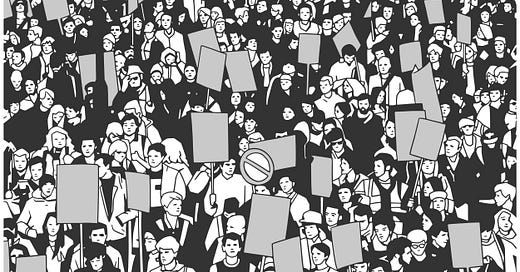We must change the Internet's legal status from what it isn't into what it is. Namely, the Internet isn't a global village or some digital public square. The Internet is more akin to a series of aisles at your local supermarket. What was said in aisle 4 was not understood in aisle 5 and never heard of in aisle 6.
But this reframing of the Internet as a collection of aisles will change the way we treat words posted online. For example, words posted to someone's Twitter or X account will no longer be regarded “public statements”, as they are now, to be prosecuted with the fervor of public prosecutors.
Instead, what was said in aisle 4 was a semi-private statement, such as what one said at the local pub last Friday.
The fact we ever thought words posted to or from someone's social media accounts were all “public statements” is incredibly insane. It gives personal tweets from the privacy of one’s Twitter profile the allure of a dead-serious global press release.
That’s not what people think of their words when they comment online, or post in a Facebook group, or even @ reply to someone on X. We’re not replying to the world! We’re replying to a handful of people, and although anyone may be able to use to Twitter/X to see our replies, that doesn’t make it a public statement.
The difference is highly technical: You had to be online to read or hear my words. And you had to be at my specific page—aisle 5—in order to have heard what I said or read what I wrote. The difference between an actual public square and an online expression is that online expressions are consumed actively: you have to look for them to see them.
Changing the legal status of words on the internet should relieve State bureaucracies from having to constantly monitor and police the internet. The belief that individuals and their tweets could somehow threaten the security of a State is ludicrous—unless the State is already deeply unstable.




